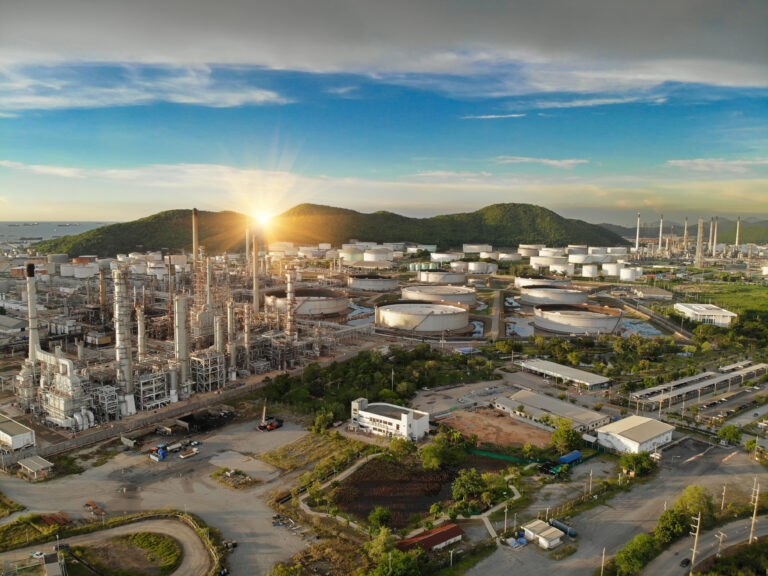

The simplest alcohol, in liquid state at atmospheric pressure, methanol is a “platform” molecule used to synthesise high added-value compounds in the plastic processing, textile, pharmaceutical or agri-food industry. It thus forms part of the manufacturing processes of many everyday products such as cosmetics, medicines, resins, plastics, paints, silicones, or animal nutrition. While methanol is currently produced almost exclusively from natural gas or coal, as close as possible to fossil resources, low-carbon alternatives have emerged over the past few years, in particular the production derived from “hydrogen: e-methanol.
e-methanol consists of using low-carbon hydrogen, produced by means of water electrolysis, and carbon recycled from industrial processes (biomass boilers, incinerators, etc.), subsequently synthesised in a methanolation reactor, and distilled to achieve the desired purity.
This pathway delivers threefold benefits: (1) adaptation to the existing infrastructure; (2) carbon reducing property; (3) industrial synergies with installation platforms.

Methanol can now replace conventional marine fuels.
The deployment of this technology is based on an existing transport and usage infrastructure. The main ports are equipped with methanol bunkering facilities (88 of the world’s top 100 ports). Shipowners may refer to the International Maritime Organisation regulations such as the International Code for Safety. Engine manufacturers such as MAN, Rolls-Royce and Wärtsilä offer “dual-fuel” solutions for refurbished or new vessels.
More than a hundred ships have already been ordered by shipping operators such as Maersk or CMA-CGM, generating additional demand for sustainable methanol estimated at more than 5 million tonnes on delivery, which is expected between 2025 and 2027.

Methanol can also be used as a precursor to produce sustainable aviation fuels through the “alcohol-to-jet” pathway.
Unlike shipping, the use of methanol for air transport involves refining processes, derived from the approaches developed to produce petrol from natural gas, in order to produce synthetic kerosene. Special industrialisation efforts are still required. The recent certification of the “alcohol-to-jet” pathway by ASTM based on ethanol and isobutanol however paves the way for several production projects.
We develop, finance, build and operate low-carbon molecule production plants in France and in the iberian peninsula. Discover the application sectors of our products !
